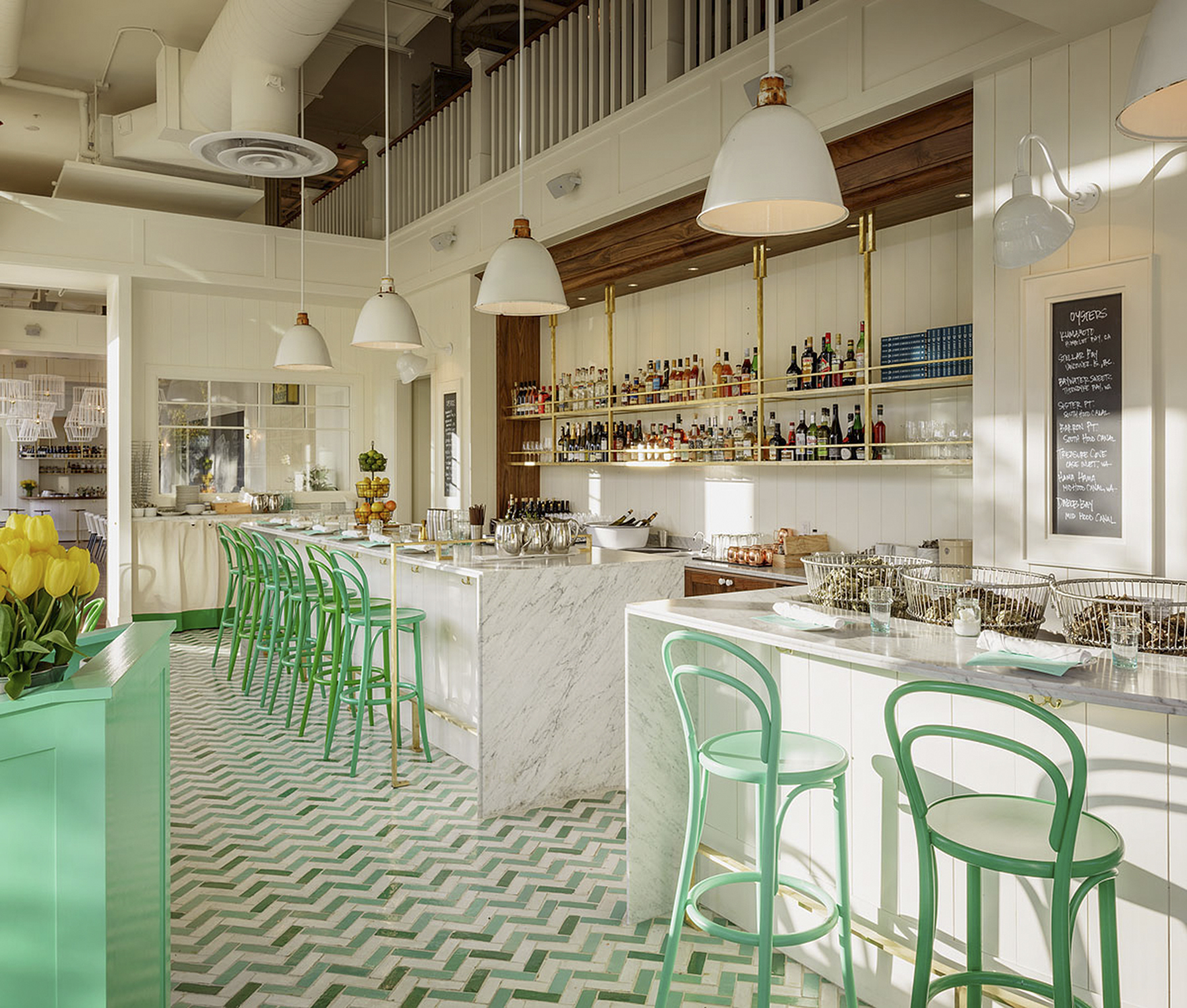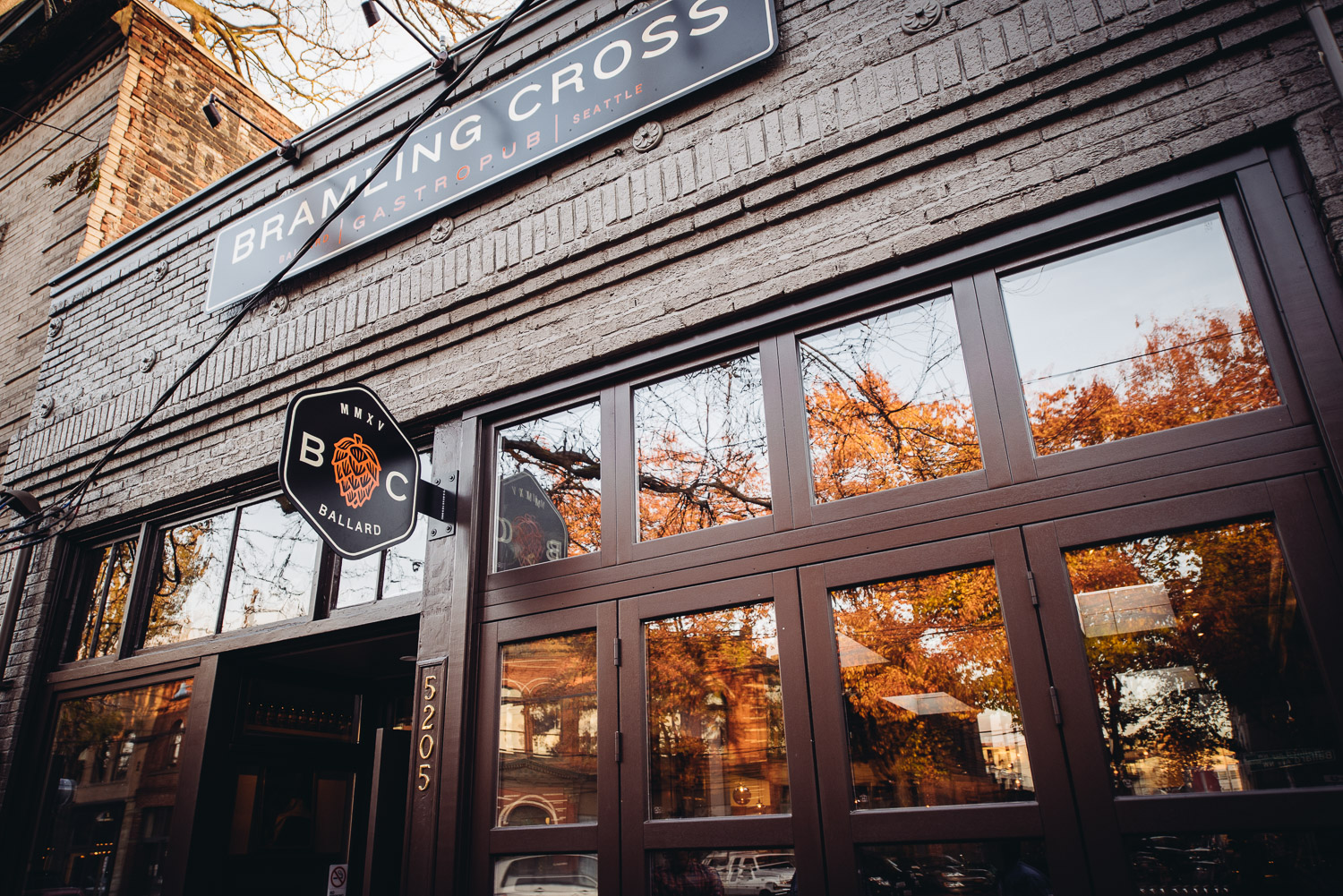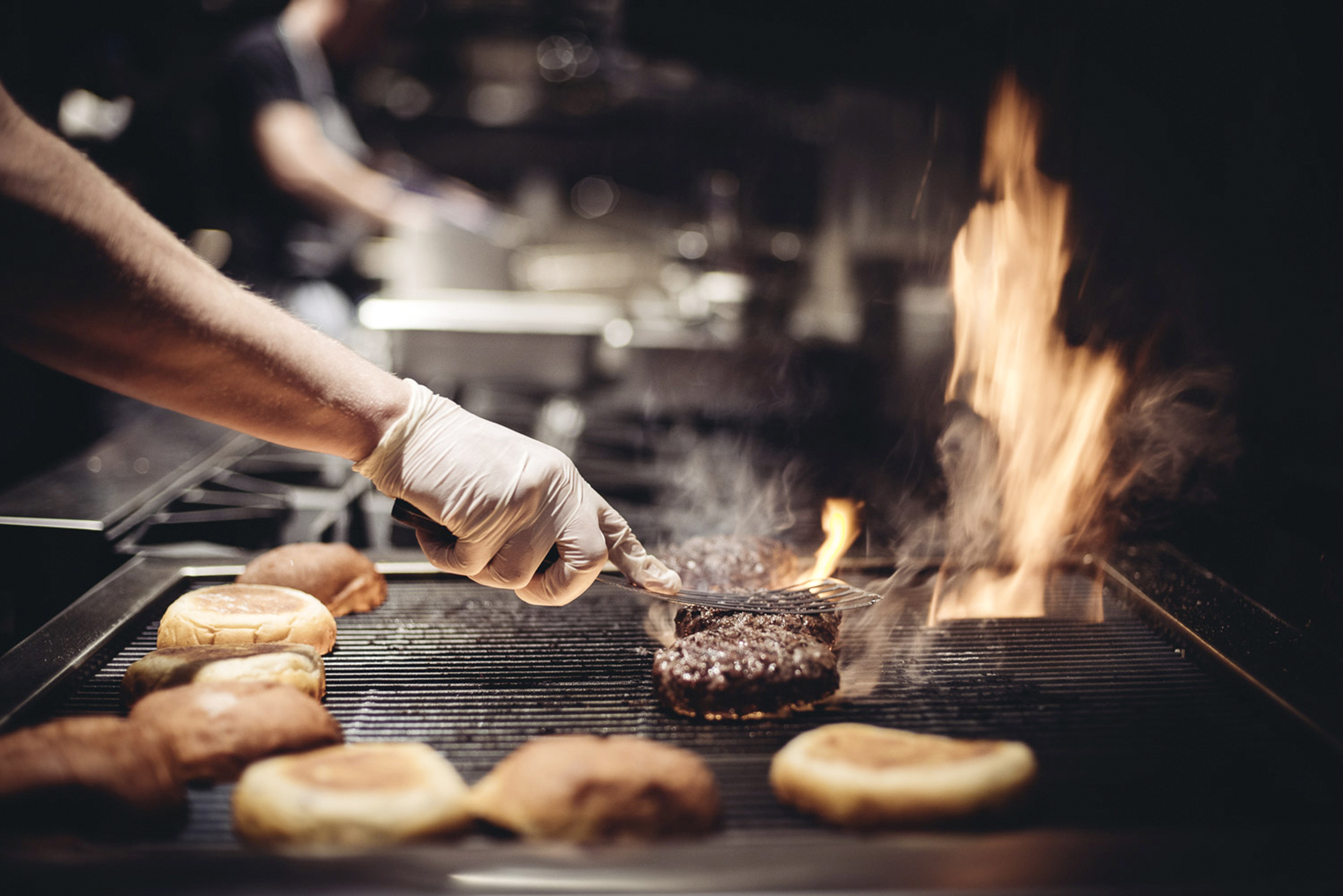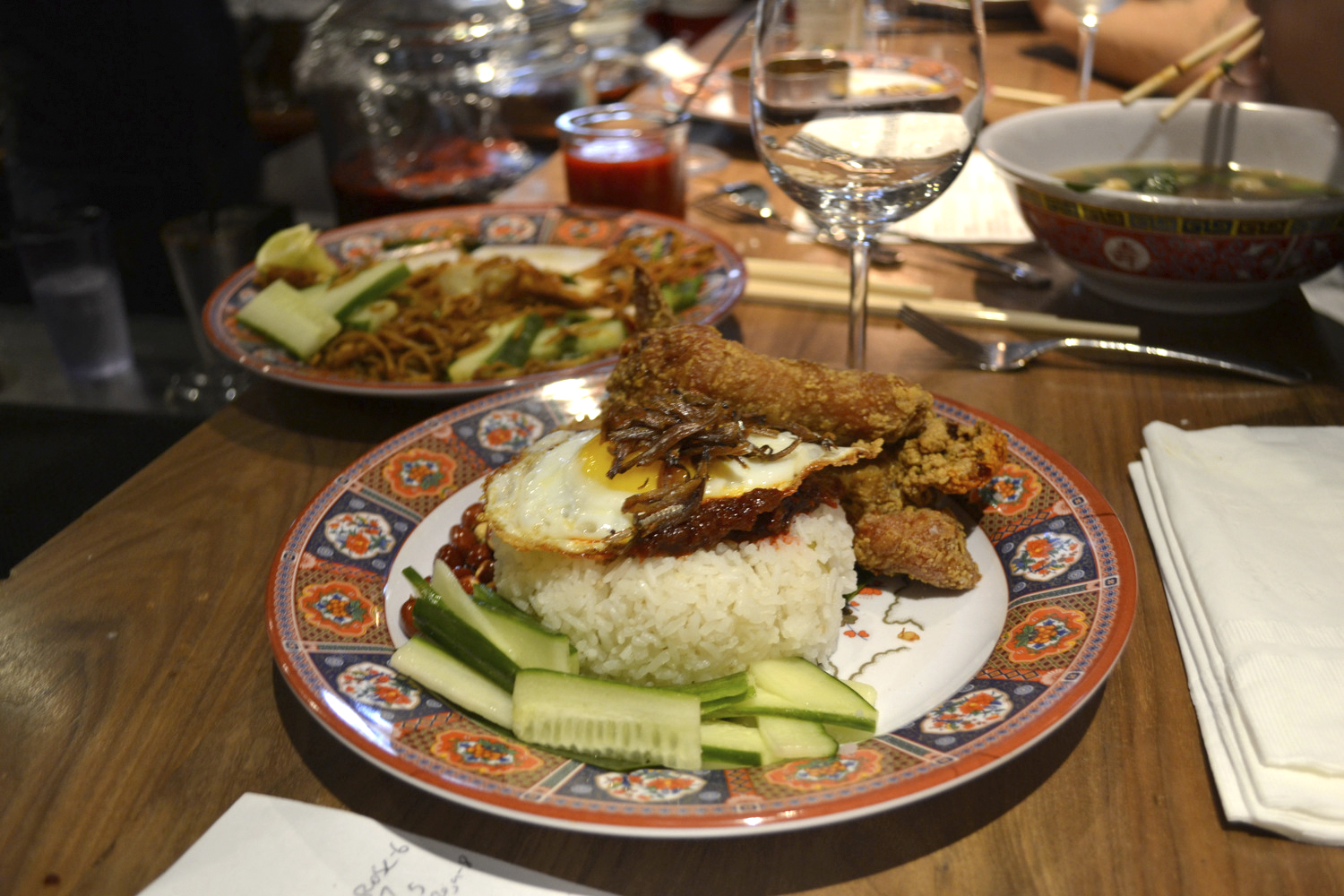Seattleites who lamented the closing of Renee Erickson’s Boat Street Cafe last May are in for some sunshine this winter. That beloved restaurant’s chef, Jay Guerrero, is back and now helming Erickson’s new French/Pacific Northwest hybrid, Bar Melusine, a recent addition that, along with her new steakhouse Bateau and donut shop General Porpoise, puts the restaurateur’s stamp on Capitol Hill.
Those who step into Bar Melusine will be instantly reminded of The Whale Wins in Fremont, with its white- and gray-flecked marbled counter and white wood walls. It’s that same signature fresh aesthetic, but now with bolts of sea green and teal throughout, painted on the chairs and doors and in the wave-like tilework on the floor. Along the wraparound counter, oysters are piled over ice in big silver baskets—and indeed are a major element of the menu, with four to five Washington-sourced varieties to choose from. During happy hour, 5–6 p.m., one of them goes for a buck a bivalve (plump, medium-brined Sister Points from the Hood Canal when I was there) while all others are a dollar off.
Seating varies from long benches running through the back of the restaurant to four adorable, white mini-“benchettes” made for two with gold antique reading lamps at the table. Three framed posters of maps line one wall; one of Washington’s Salish Bay, the others of Brittany and Normandy. If those don’t make the French connection clear, the menu’s liberal use of French should drive home the point. The cutest design feature: a tiny cutout between the kitchen and the counter, just big enough to fit a face, allowing chefs to chat intimately with a staffer at the counter. One can imagine it facilitating furtive work romances.
While the menu has plenty of seafood-focused small plates, there are also vegetables and meat and a requisite cheese plate, as well as Columbia City bread with Sea Wolf whipped butter. Our server kindly, and smartly, sent us a plate of the $5 bread to accompany our brined and smoked leg of lamb with a sauce gribiche—served cold, as meats so often are at Erickson’s restaurants. A hearty portion of the lamb was sliced incredibly thin; it resembled carpaccio or mounds of charcuterie, and its lamb-forward flavor couldn’t have been better served by the gribiche, a French sauce made from mayonnaise, emulsified hard-boiled egg, and tangy ingredients like capers, pickled vegetables, lemon juice, and chervil. It was quite a large “small plate,” especially for $12. Of Erickson’s many menus, this one offers the most value, without sacrificing quality ingredients.
Lamb aside, I chose to stick mostly with seafood, starting the meal with the fried fish skins. I assumed they’d be a kind of alternative to frites (also on the menu), and indeed the chicharron-style salmon skin was oily and salty—and quite fishy, good or bad depending on your taste. They are served with scattered jewels of orange salmon roe, shaved radishes, and some small smears of creme fraiche, which unfortunately were concentrated at the bottom of the bowl. By the time I realized that, the crackers were gone and I longed for more of it to enjoy against the salinity.
The smoked mussel tartine ($12) consists of two pieces of grilled Columbia City bread topped with small but meaty mussels and a pile of pickled fennel. It’s quite tasty, but the fennel, particularly its acidity, does dominate the mussels. I actually pulled mine out to eat on their own to better appreciate their sweetness. The spot prawns in a vadouvan curry-like broth with wild mushrooms, pumpkin, and cream was my favorite dish on the menu ($13). The delicate prawns are poached to perfection, and while the broth could have easily become overly rich, it manages to mirror the delicacy of the shrimp and is accented by herbal notes of thyme. This dish, so suggestive of winter, could easily be enjoyed in summer due to its unexpected brightness of flavor. Meanwhile, a cold shaved rutabaga salad ($8) obtains a heartiness from almond cream, mint, and coriander, unlike many preparations that pair shaved root-vegetable salads with tart lemon vinaigrettes. I loved these sly twists—a play of opposites—on predictable seasonal favorites.
We ended the delightful, light meal with a Pineapple Eton Mess by pastry chef Clare Gordon (formerly of the now-defunct Aragona). Her playful interpretation of this classic English dessert, traditionally made with strawberries, cream, and meringue, instead marries roasted pieces of pineapple with espresso cream, slabs of cardamom meringue, and bee pollen (which hits the back of the palate beautifully). Gordon nails the flavors; my only small complaint is the ratio of ingredients. I’d like a few more pieces of pineapple, a little more cream, and less meringue.
It’s worth noting that Erickson adds a 20 percent surcharge to her bill in lieu of a tip—money intended to help compensate all employees in the wake of the minimum-wage increase, with 55 percent of it going to those “directly serving the customer.” This was my first experience at a restaurant with a surcharge, and I’m happy to report that service was not affected. In fact, the servers were incredibly friendly and knowledgeable, going beyond the call of duty in offering that free bread. If this experience is any indication, perhaps all the hoopla over whether service will suffer in the absence of tips is ultimately overstated.
Seattle Weekly is your source for the latest in dining and drinking in the city. If you know something we should know, e-mail food@seattleweekly.com. Follow us on Facebook and Twitter.








